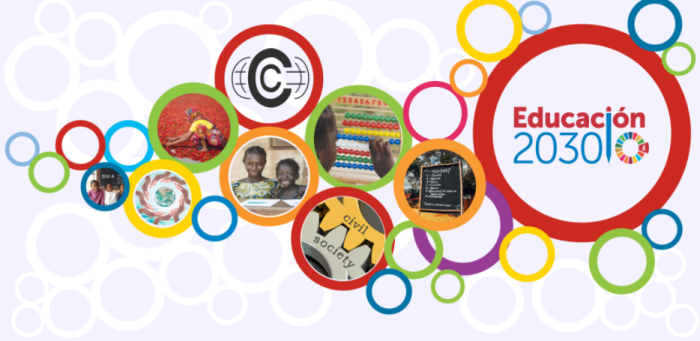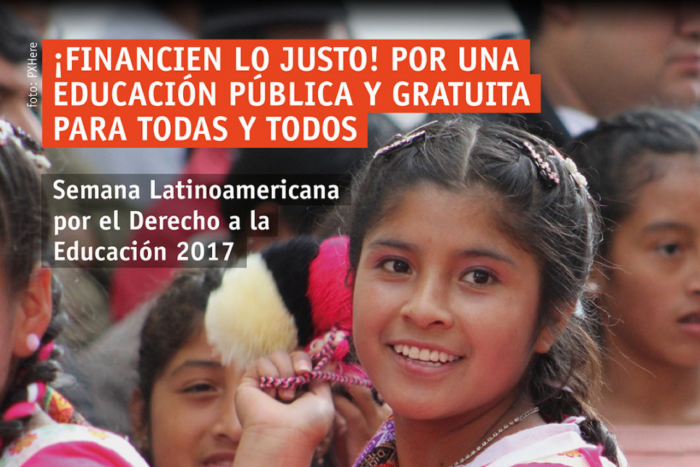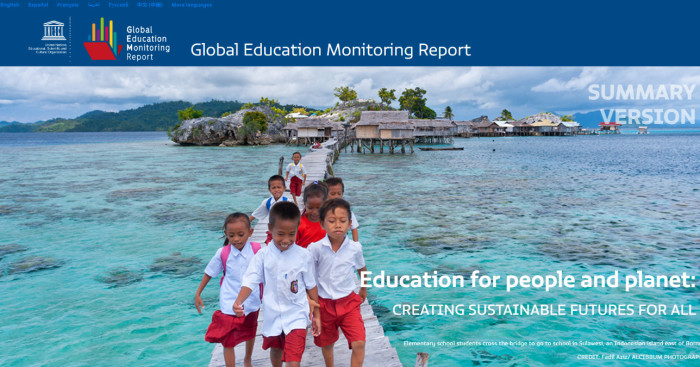Representatives from numerous national, regional and international non-governmental and civil society organizations and members of the 2030 Education Collective Consultation of Non-Governmental Organizations (CCNGO) from different parts of the world met in Siem Reap, Cambodia, from May 8-9th, 2017.
The main goal of the meeting was to take stock and discuss the progress made in achieving SDG4-Education 2030 from the adoption and formulation of recommendations.
Participants analyzed the initiatives undertaken, the main challenges faced, the opportunities identified and ways to move forward. They also discussed the support that CSOs should provide to SDG4 at the national, regional and global levels, as well as the contributions of the CCNGO in this regard.

Challenges and Opportunities
The statement issued following the meeting indicates that the challenges to education have been exacerbated by external factors in the social and political environment, in particular, by conflicts, war, violence, fundamentalism and insecurity affecting citizens in such situations. “As far as policies are concerned, they either do not yet exist or are not based on the SDG4-Education 2030 perspective and even, in some cases, diverge from it.” With regard to funding, they noted that both national and official development assistance for education had declined.
Another of the major challenges identified during the meeting is the increased privatization and commercialization of education, and the risk of undermining free and public quality education, aggravating inequalities. They consider that there is still a shortage of trained teachers, compounded by insufficient initial and continuing training and poor working conditions.
Recommendations
In addition to identifying the various risks involved in achieving quality, free, inclusive and equitable education, the organizations acknowledged that it is the responsibility of governments to ensure its provision and offer a number of recommendations to do so. The representatives urged those who have not yet done so to formally establish legal frameworks on the right to education.
“We call for intensified efforts to meet the agreed commitments to allocate between 4% and 6% of GDP and/or between 15% and 20% of public spending on education, bearing in mind that more and more resources are needed. Resources for education must be maintained and increased as necessary, even in crisis situations, while respecting the standards of equity and quality.”
In their statement, they strongly recommended that donor countries reverse the decrease in aid and meet the target of allocating 0.7 percent of gross national income to official development assistance to developing countries and 0.15 per cent and 0.2 per cent for least developed countries.
They encouraged Governments to intensify their efforts towards inclusive education, in particular by focusing on gender equality, disability, migrants and refugees, and respect for diversity. They should also remedy the shortage of teachers through the training and recruitment of qualified teachers, and ensure their permanent professional training.
About the participation of the International Federation of Fe y Alegría in the Collective Consultation
The United Nations (UN) recognizes the International Federation of Fe y Alegría, a movement present in 21 countries, as an NGO with Special Consultative Status. This way, the UN grants the association the character of accredited organization for the consultation in education and human rights, and it allows it to assist and intervene in the UN conferences, as well as send statements.
The Special Consultative Status is granted to NGOs that have specific competencies and it refers specifically to some of the areas covered by the Economic and Social Council, the forum in which the NGOs are represented inside the UN. This status offers NGOs access not only to the Council, but also to its subsidiary bodies, to the human rights mechanisms in the UN, to special processes, and to special events organized by the General Assembly president.
About the Collective Consultation
The Collective Consultation of Non-Governmental Organizations on Education for All (CCNGO/EFA) is UNESCO’s essential mechanism for dialogue, reflection and collaboration with NGOs in the field of education. Since its inception in 1998, the scope of CCNGO/EFA has been changed to become an international network of more than 300 national, regional and international NGOs members of the CCNGO/EFA. The network remains an essential mechanism and a platform that allows civil society organizations to contribute to the collective commitment by 2030 with the aim of ensuring inclusive quality education and lifelong learning opportunities for all.


